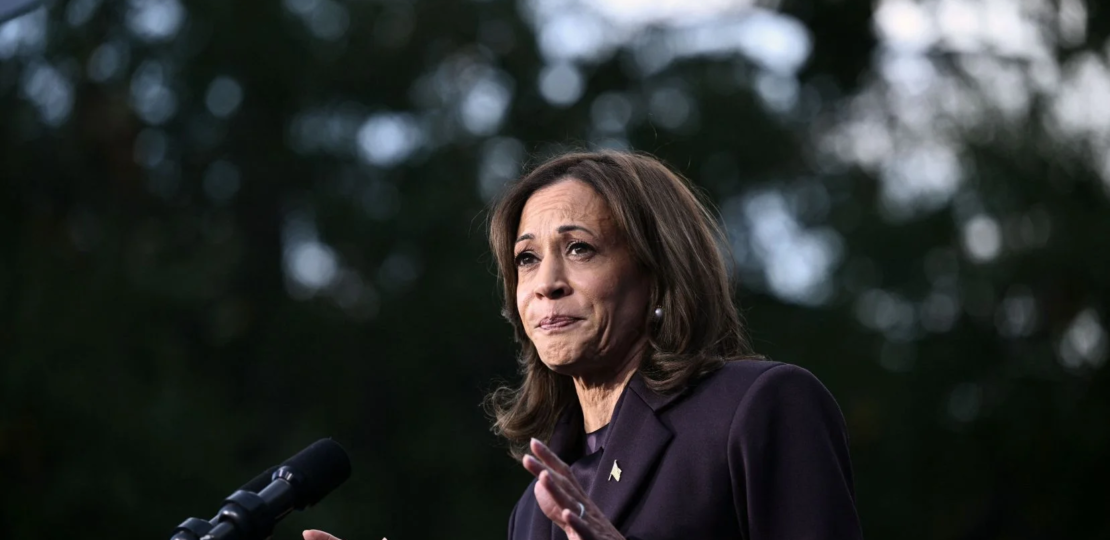The night of November 5-6, 2024 saw Donald Trump become the 47th President of the United States. He became the first president to be re-elected for a second term without being the incumbent president. For Kamala Harris and the Democratic camp, the disappointment is enormous, she who said she was so confident a few hours before the results. So how can we explain Kamala Harris' defeat?
Biden's image
When Kamala Harris was appointed Vice President of the United States by Joe Biden, it was a good move. She became the first black and Asian woman to hold this position. The bet was all the more interesting because she was seen as Joe Biden's successor in 2024, if he could not run again, which was the case. However, the Biden administration's mandate disappointed a large number of Americans. Kamala Harris thus became, for many, the image of the continuity of the outgoing president's mandate. According to the Pew Research Center, only 35% of Americans said they were satisfied with Joe Biden's mandate while 62% disapproved of it last April. Harris also did not benefit from Joe Biden's last-minute withdrawal in July, which left her very little time to organize her campaign. Harris thus appeared, including within the Democratic Party, as a spare tire.

The Biden administration’s handling of the Israeli-Palestinian crisis may also have influenced Kamala Harris’ campaign. Ballots counted in Michigan show that Harris was 80,000 votes short of winning the state. This state, which has the largest number of Arab Americans (211,000), saw a large portion of this community abstain in these elections, dissatisfied with the Biden administration’s handling of the Palestinian issue.

This rushed campaign and Biden's shadow were thus reflected in the results. In 2020, Barack Obama's former vice-president won against Donald Trump in several swing states such as Pennsylvania, Georgia, Michigan and Wisconsin. Kamala Harris, for her part, lost to Trump in all of these states. Even more alarmingly, she performed less well in states that were nevertheless committed to the Democratic cause, such as California, which she won with a score of 57.%, while Biden won with 63.5TP3T of the vote in 2020, or New York, which she won with 56.% of the vote compared to 60.9TP3T for Biden.
Imperfect communication?
Kamala Harris knew how to harangue the crowds during her mandates and led an impressive campaign. She had even managed to catch up with Joe Biden's delay to Donald Trump in the polls, to the point where no one could predict the outcome of the elections a few hours before the votes were counted.
However, Kamala Harris' communication has irritated some American voters. A first example is that of Tim Walz, whom she had chosen as future vice president. However, the latter remained in the background during the campaign, not allowing Americans to form a real opinion about him. In addition, the justification for this choice by the Democratic candidate was not unanimous. According to CNN, Ms. Harris liked Tim Walz, then governor of Minnesota. Also according to CNN, she appreciated his simplicity and the way he presented himself as an accessible and unpretentious man.

Additionally, according to The New York Times, Harris has sometimes been seen as unconvincing in her positions on key issues such as environmental policy and criminal justice reform. At some campaign events, voters were left with little to no answers to their questions, as the vice president offered vague answers. On criminal justice reform in particular, she avoided making clear commitments on specific reforms, suggesting that she was hesitant and lacking depth on crucial issues.
Insufficient support?
Kamala Harris has received support from many personalities throughout her campaign. Like many Democratic candidates, she has attracted the support of music and Hollywood stars, such as Anne Hathaway, the cast of Avengers with Scarlett Johansson and Robert Downey Jr., or Katy Perry, Taylor Swift and Eminem. She has also benefited from the support of the Obamas, whose influence remains extremely important in American politics.

However, Donald Trump has also benefited from significant support. The most significant coming from the richest man in the world: Elon Musk. The latter contributed significantly to Donald Trump's campaign, investing no less than $130 million. He also got significantly involved by recently offering $1 million per day to citizens voting for Trump in key states. A maneuver that was contested but ultimately deemed legal by the Pennsylvania courts. Another asset that strengthened Trump's influence: X. The social network, acquired by Musk in 2022, provided significant support to Trump. Musk's propaganda tweets in favor of Trump were constantly highlighted, giving Trump a significant showcase to spread his ideas and conspiracy theories. It is estimated that 75,% of the new president's tweets (including reposts) promote "fake news", which allows him to expand his electorate.

Kamala Harris, for her part, had the support of a large part of the media such as CNN and the New York Times. However, X allowed Trump to reach a younger, perhaps more naive electorate, which Kamala Harris failed to reach.
Too wise a campaign?
Kamala Harris also perhaps lacked that little bit of madness. Paradoxically, she did not have the opportunity to stand out with a major event. Donald Trump had this "chance" last July, when he appeared in public after an attempted attack, brandishing his fist in victory. There are also his little dances and his theatrical style, which gave him the image of the "cool grandpa", loved for his show and his PR stunts, which Americans are fond of. Kamala Harris, for her part, showed more reserve during her campaign, focusing on substance rather than form, which may have worked against her during these elections. Victor Hugo had said "Form is substance that rises to the surface". Unfortunately, for Kamala Harris, Americans will have preferred the form of Trump's ideas to the substance of Harris's.

RELATED POSTS
View all




